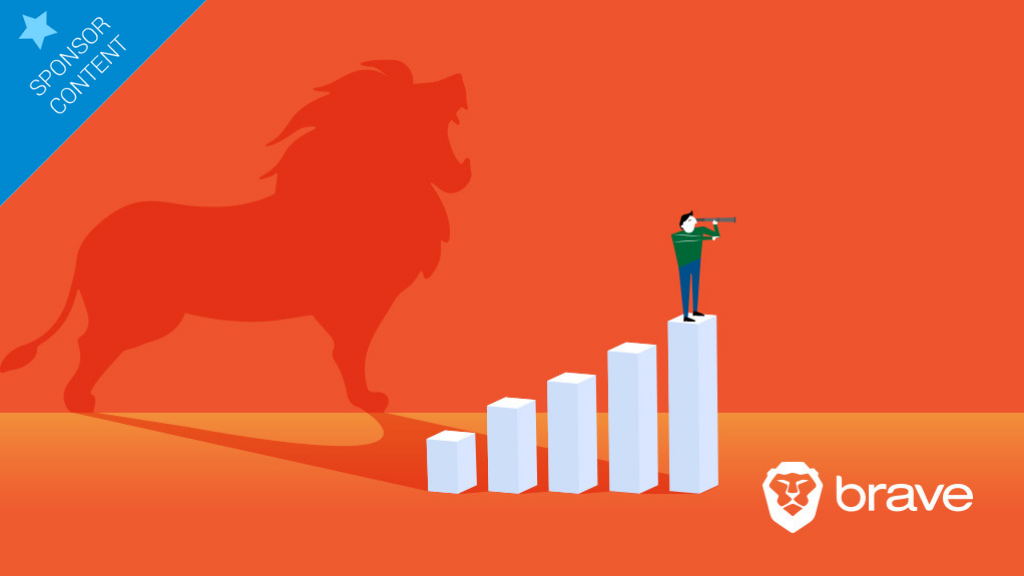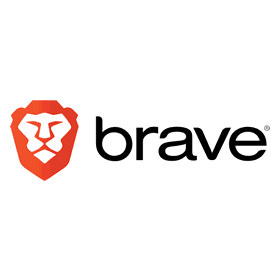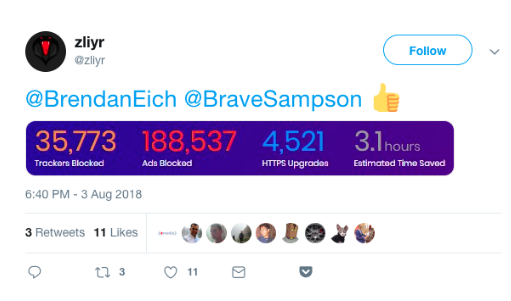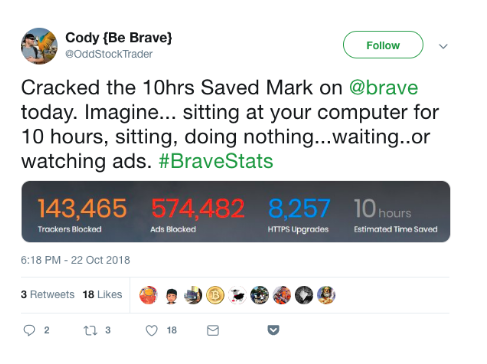How To
5 reasons why you should be using Brave

- December 12, 2018
- Updated: July 2, 2025 at 5:38 AM

Google Chrome and Safari are two of the most recognized browsers out there, but just because they’re popular doesn’t mean they’re the best. Brave is one of our favorite browsers, from the Co-Founder of Mozilla, Brendan Eich. It’s fast, private, secure, and offers a new way to reward websites without having to watch ads.
Here are five reasons you should be using it right now

1. Safety
Cybercrime is a lucrative business – it’s expected to make criminals $1.5 trillion this year alone. Brave does several things to protect your security online. First, it blocks all malware, malvertising, spyware, phishing, fingerprinting, and also upgrades websites to HTTPS (a secure connection between you and a website). It also prevents scripts running on the page, so no-one can hijack your browser.
With Brave you can enjoy peace of mind without having to install countless extensions.
From: Hotspot Shield (Advertised)
2. Speed
Brave is twice as fast as Chrome on desktop, and up to eight times as fast on mobile. The time you save using Brave quickly adds up. If you don’t believe us, check out these Twitter users’ stats:


Brave’s privacy and security shields also prevent a lot of unwanted or malicious content from interfering with your browsing. You get a clean page, lightning fast, every time.
3. Support your favorite sites
Brave blocks all ads by default, which normally harms your favorite sites since they’re no longer generating ad revenue.

Brave Rewards changes all of that: Brave saves you from watching annoying ads, opting to instead let you reward websites through a cryptocurrency called the BAT (Basic Attention Token). You can buy BAT in the Brave browser using other cryptocurrencies, or you can also pay using fiat (GBP, USD, EUR, etc.) via an exchange like Uphold.
With BAT in your Brave browser wallet, you can tip any website you like. Eventually, you can even earn BAT by watching ads based on the content you enjoy the most. So load up your wallet and give back to your favorite content creators.
4. Stop corporations from spying on you
In our data-driven age, it seems every company from Facebook to Google knows where we eat, shop, and travel. Brave bucks this trend by making it extremely difficult for anyone to track you. It blocks all spyware, trackers, and third-party cookies. Brave never stores anything on its servers, so your data stays on your device until you delete it.
Brave has also partnered with Tor (The Onion Router) to give you an ultra-private browsing mode called Private Windows with Tor. Everything you do in a Private Window with Tor is relayed across the Tor network, effectively hiding your data through a complex web of servers so you can’t be traced.
If you’re concerned about your data, privacy, or simply want to reclaim control from big tech companies, Brave is your best bet.
5. Save on mobile data
Ads use as much as 79% of your data plan, according to a report from Enders Analysis. Brave estimates you lose around $23 per month on data charges, or around $276 per year. For unwanted content, that’s a steep price to pay.
Since Brave blocks all unwanted content by default – including annoying ads – you get more data for your money. That means fewer excess data charges and more money in your pocket.
Brave is fast, private, secure, and best of all, it could even save you money. So what are you waiting for? Download, install, and start using Brave today. We’re sure you won’t regret it.

Softonic is proud to partner with Brave. When you download from us, we may earn a commission.
You may also like
 News
News1 in 3 Android apps have serious API leakage issues, according to a recent study
Read more
 News
NewsThe rise of fake captchas: a new weapon for cybercriminals
Read more
 News
NewsGoogle disables the 100 results per page feature and leaves users stunned
Read more
 News
NewsThe second season hasn't even premiered yet, and Disney+ has already renewed this superhero series for a third one
Read more
 News
NewsIs Hollow Knight: Silksong too difficult? Its creators defend that it is not
Read more
 News
NewsMicrosoft teams up with ASUS to launch ROG Xbox Ally and compete with Steam Deck
Read more